
Vintage International Edition, March 1989 Introduction copyright 1982 by Robert Hass Copyright 1980, 1981, 1982 by Stephen Mitchell
All rights reserved under International and Pan-American
Copyright Conventions. Published in the United States by Random House, Inc., New York, and simultaneously in Canada by Random House of Canada Limited, Toronto. Originally published in the United States by Random House, Inc., with the cooperation of Insel Verlag, Frankfurt am Main, W. Germany, in 1982. Some of these translations first appeared in the following periodicals:
American Poetry Review, Kenyon Review, New York Review of Books, Occident, Paris Review, The Ten Directions, Threepenny Review, Zero.Grateful acknowledgment is made to the following for permission to reprint previously published material: Bechtle Verlag (Munich): Excerpts from Rainer Maria Rilkes
Briefwechsel mit Benvenuta, edited by Magda von Hattingberg Harper & Row, Publishers, Inc.: Sometimes a man stands up () from
Selected Poems of Rainer Maria Rilke. A Translation from the German and Commentary by Robert Bly. Copyright 1981 by Robert Bly.
Reprinted by permission of the publisher. Library of Congress Cataloging in Publication Data
Rilke, Rainer Maria, 18751926.
The selected poetry of Rainer Maria Rilke. Reprint.
Originally published: New York:
Random House, 1982.
English and German.
Includes bibliographical references and index.
I. Mitchell, Stephen. II. Title.
[ PT 2635.165 A 2525 1984] 831.912 83-47799
Print ISBN: 978-0-679-72201-4
eBook ISBN: 978-0-307-78754-5 v3.1 To Robert L.
Mitchell
CONTENTS
LOOKING FOR RILKE
Last fall, in Paris, a friend promised to take me to the caf, not far from Rue Monsieur-le-Prince, where Rilke was said to have breakfasted in the early years of the century when he was working as Rodins secretary. I was glad for the pilgrimage because, of all poets, Rilke is the hardest to locate in a place. He was born a year after Robert Frost, in 1875, a little too soon to be a young modernist, and the dissimilarity between his work and Frosts is so great that the fact does not help to anchor for me a sense of his life. The house where he had lived in Prague as a child cannot be seen; it was destroyed during the war. Besides, Praguethat, God forgive me, miserable city of subordinate existences, he had writtenseemed to explain very little. In his childhood, it was the capital of Bohemia.
Rilkes family belonged to the German-speaking minority that formed the citys professional class in those years. He was insulted once to be called a German, and, when the speaker corrected himself, I meant, Austrian, Rilke said, Not at all. In 1866, when the Austrians entered Prague, my parents shut their windows. He had a lifelong sense of his own homelessness. Anyway, Rilke came to hate his native city. His father was a failed army officer who became a petty clerk for the railroad.
His mother, a complicated woman, cold and fervent, driven alternately by a hunger for good society and by pious Roman Catholicism, was an affliction to him. There was probably nothing more suffocating than the life of a genteel, aspiring European household of the late nineteenth century in which failure brooded like a boarder who had to be appeased, or like the giant cockroach which was to appear in another Prague apartment in 1915. All his life Rilke carried that suffocation inside him; and it was very much on my mind because I had just been reading Stephen Mitchells fresh, startlingly Rilkean translations of the poems. Here, finally, was a Rilke in English that would last for many generations. Walking through European cities with Mitchells Rilke in my ear, trying to see with Rilkes eyes, I could begin to feel in the new downtowns, in the old city squares like stage sets with their baroque churches by the rivers and restored fortresses on the hills, the geography of that suffocation; it flares in the brilliant anger of the Duino Elegiesin the Fourth, for example, where the images that the world presents to him seem so much like a bad play that he swears hed prefer a real puppet theater and imagines himself as a kind of demented critic who refuses to leave the theater until something happens: Who has not sat, afraid, before his hearts curtain? It rose: the scenery of farewell. Easy to recognize.
The well-known garden, which swayed a little. Then the dancer came. Not him. Enough! However lightly he moves, hes costumed, made upan ordinary man who hurries home and walks in through the kitchen. I wont endure these half-filled human masks; better, the puppet. It at least is full. Here. Here.
Im waiting. Even if the lights go out; even if someone tells me, Thats all; even if emptiness floats toward me in a gray draft from the stage; even if not one of my silent ancestors stays seated with me, not one woman, not the boy with the immovable brown eye Ill sit here anyway. One can always watch. Or the Tenth, which envisions adult life as an especially tawdry carnival: And the shooting-gallerys targets of prettified happiness, which jump and kick back with a tinny sound when hit by some better marksman. From cheers to chance he goes staggering on, as booths with all sorts of attractions are wooing, drumming, and bawling. For adults only there is something special to see: how money multiplies, naked, right there on stage, moneys genitals, nothing concealed, the whole actioneducational, and guaranteed to increase your potency This anger is probably part of the reason why the Elegies took ten years to complete.
Rilke seems to have needed, desperately, the feeling of freedom which he found only in open, windy spacesDuino, Muzot. Wandering the empty Sunday-morning warren of streets off Boulevard St.-Michel, remembering how passionately Rilke had argued that the life we live every day is not life, I began to feel that looking for him in this way was actively stupid. There was another friend with us, a Dutch journalist named Fred, who was hungry and could not have cared less where Rilke ate breakfast. It was Fred who asked me if I knew the name of the woman who had loaned Rilke a room in Duino Castle. I did. She was Princess Marie von Thurn und Taxis-Hohenlohe.
Trying to imagine what it would mean to have a name like that discouraged me from thinking I would ever understand Rilkes social milieu. It signified a whole class of people, seen at a distance like brilliantly colored birds, which had been wiped out by the First World War. Fred was in Paris to interview the Rumanian writer E. M. Cioran, who has been called the last philosopher in Europe, about the new European peace movement. He pointed out to us the little garret, tucked like a pigeon coop under the roof of a building just off the Place de lOdon, where Cioran lives and works, as if he hoped that it would serve as a reasonable substitute, or would at least drag us back to the present.
For it was clear that my friend Richard was also looking for something that the memory of his student days in Paris had stirred in him. He had lost some map in his head and felt personally anxious to retrieve it. And it was clear that he wasnt going to find it. The transience of our most vivid experience is the burden of another of Rilkes complaints, the one in the Second Elegy where he compares humans with angels: But we, when moved by deep feeling, evaporate; we breathe ourselves out and away; from moment to moment our emotion grows fainter, like a perfume. Though someone may tell us: Yes, youve entered my bloodstream, the room, the whole springtime is filled with you what does it matter? he cant contain us, we vanish inside him and around him. And those who are beautiful, oh who can retain them? Appearance ceaselessly rises in their face, and is gone.


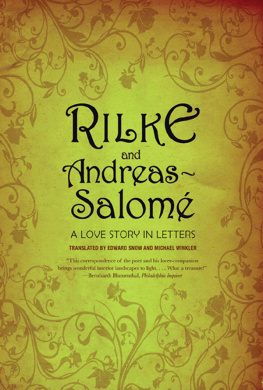
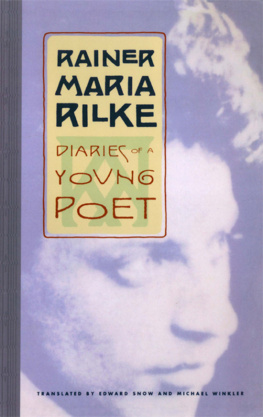
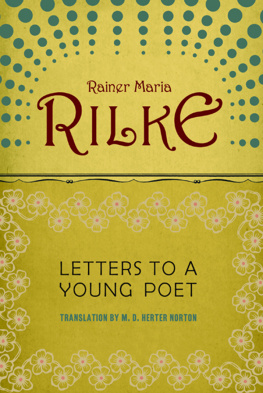
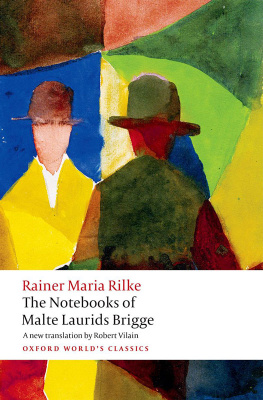
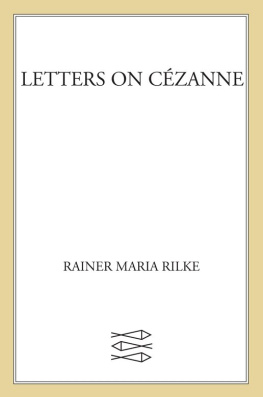
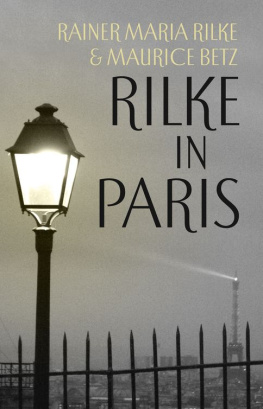
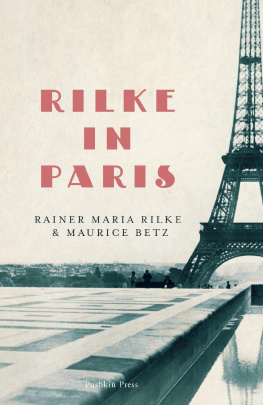

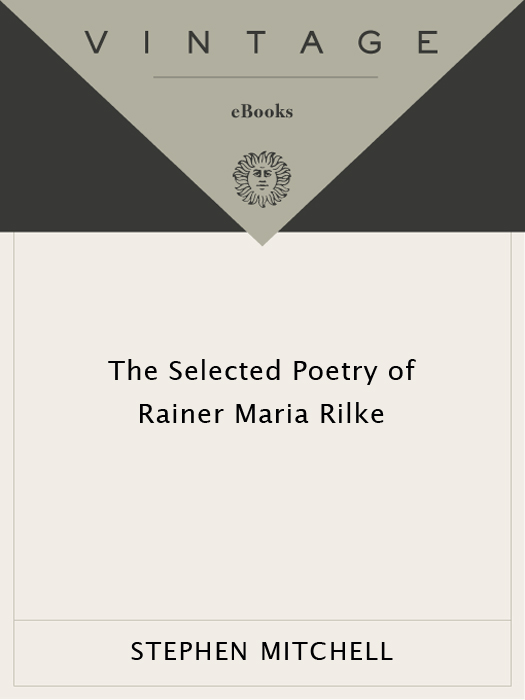
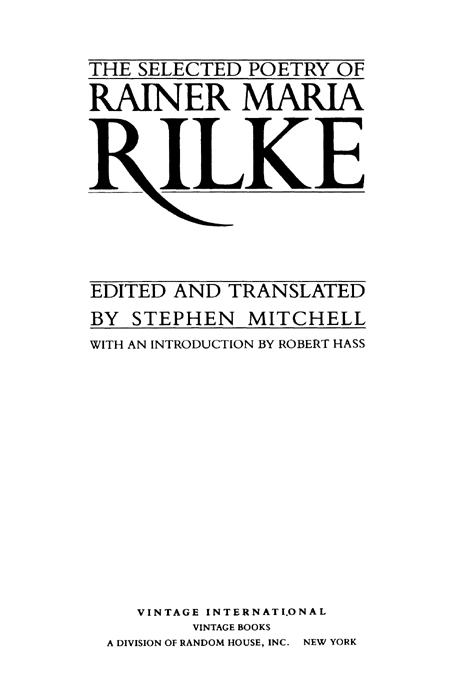
 Vintage International Edition, March 1989 Introduction copyright 1982 by Robert Hass Copyright 1980, 1981, 1982 by Stephen Mitchell
Vintage International Edition, March 1989 Introduction copyright 1982 by Robert Hass Copyright 1980, 1981, 1982 by Stephen Mitchell